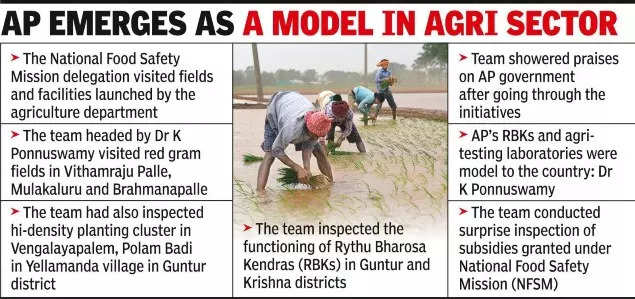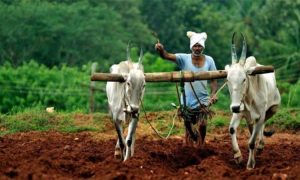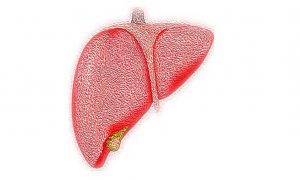AMARAVATI: Stating that the launch of Rythu Bharosa Kendras and advanced agri-testing laboratories in villages is a revolutionary change, a delegation of National Food Safety Mission (NFSM) said that Andhra Pradesh has become a model state in the country in providing services to farmers.
The team members said they were surprised to find the latest seed testing laboratories in mandal centres. The team said the initiatives of the state government should be extended to other states.

The team headed by National Oil Fed joint director Dr K Ponnuswamy inspected Rythu Bharosa Kendras (RBKs) in Krishna and Guntur districts. The team was impressed after seeing certain facilities in the RBKs.
“We thought Tamil Nadu is the leader in terms of seed testing laboratories with 33 centres. We are surprised to see 160 centres in AP. This is going to be a game-changer,” said Dr Ponnuswamy.
He praised the state government for initiating RBKs.
He said no other state has experimented and extended services to farmers the way AP has done.
Yield may fall by 30-60% in states studied
The farm scientists have also projected a fall in rice yields based on increase in temperature by varying degrees. They warned that the rice yield is expected to decrease in 30 to 60% of the states studied as part of the research. The result of the research was published in the recent issue of the science publication, Journal of Water and Climate Change.
According to the projections, the average rainfed gap in yield of paddy will be 1.49 tonnes per hectare in the future. “The trend of seasonal climate variables shows an expected increase in maximum temperature, minimum temperature and rainfall, and a decreasing trend in solar radiation in the future i.e. 2030 and 2040s over the study area.
Consequently, average spatial water-limited potential rice yield is expected to reduce from 3.62 tonnes per hectare in the historical period to 3.11 tonnes per hectare and 3.02 tonnes per hectare during the 2030 and 2040s, respectively,” the study predicted.
The scientists further said there will be an increase in yield gap of 20.9% and 22.2% by 2030 and 2040s respectively. A stagnated yield gap in 29.7% and 26.5% and decreasing yield gap in 49.4% and 51.3% of the study area during 2030 and 2040s respectively. The researchers said their finding “contributes to understanding the consequences of climate change on rice yield gap and future food security concerns in India”.





































